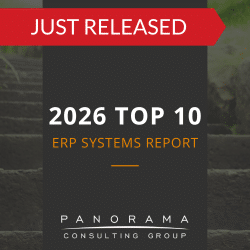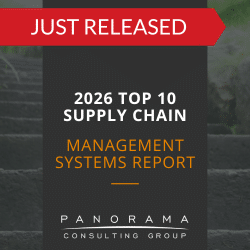In an era where data-driven decision-making defines competitive advantage, integrating external data into ERP systems is a strategic priority for many CEOs. External data can provide critical insights, enhance predictive analytics, and improve customer experiences.
However, the path to seamless integration is fraught with complexities and potential risks. Navigating these external data challenges requires an understanding of the common issues that can arise.
Today, we’ll look into these hidden risks, offering insights into how an ERP consultant can guide you through this intricate journey while safeguarding organizational value.
Navigating the Complex Landscape of External Data Integration
External Data Challenges
Integrating external data often brings with it significant risks, particularly when organizations fail to align this data with existing ERP systems. The structure, quality, and format of external data can vary widely, creating inconsistencies that disrupt internal operations. These disruptions can escalate into broader issues, potentially leading to ERP failure.
IT and Third-Party Data Challenges
ERP systems are inherently complex, designed to centralize data and streamline internal processes. Integrating external data often introduces new layers of complexity that existing IT infrastructure may not be equipped to handle.
Common IT challenges include adapting legacy systems to interface with modern API connections, synchronizing data in real time, and ensuring seamless compatibility between disparate data structures. Here, our ERP experts become indispensable, providing the guidance needed to update and adapt systems efficiently.
Moreover, third-party data introduces additional risks related to data security and reliability. Ensuring that data from external providers meets quality standards and adheres to data governance policies is essential. Our expert witnesses in computer software have analyzed cases where organizations inadvertently integrated compromised or low-quality data. This could have been avoided with a robust data validation and governance framework.
Contemplating litigation?
We have multiple software expert witnesses available for provision of reports, depositions, and testimonies.
Addressing Risks: Strategic Recommendations for CEOs
Data Quality
Data quality is one of the most significant risks associated with integrating external data. Unlike internal data, which is generated and managed within the organization, external data can come from a range of sources with varying collection methodologies and quality standards. If not validated, poor data quality can corrupt analyses and lead to erroneous business decisions.
Security Challenges
ERP systems, once connected to external data sources, create a wider digital perimeter that may become vulnerable to cyber-attacks. This expanded attack surface presents unique IT and third-party data challenges, particularly when data is sourced from various vendors with differing security protocols. A breach or a failure in these third-party systems can lead to unauthorized access to critical business data.
Addressing these challenges requires a robust security strategy. Our ERP consultants often advise selecting an ERP system with multi-layered cybersecurity . This means network security controls, data encryption, user access management, and more.
Cost Management
The financial impact of integrating external data often extends beyond initial acquisition costs. Organizations must budget for software enhancements, data storage solutions, and the potential need for additional infrastructure. These expenses can strain budgets and obscure the return on investment (ROI).
Scalability and Future-Proofing
The nature of business and technology evolution means that data integration strategies must be scalable. An initial integration that works today may become obsolete as new data sources and technologies emerge.
Scalability is often overlooked in data integration, leading to systems that struggle under increased data volumes or more complex data types.
Future-proofing your integration strategy means investing in adaptable ERP systems capable of evolving with new technology trends. Technology experts can further enhance scalability by providing forward-looking insights into emerging technologies that could impact data integration.
Leveraging Expert Resources
To successfully navigate the hidden risks of external data integration, CEOs should employ a multifaceted approach that includes expert guidance at every stage. Here’s how:
Prioritize Change Management
One of the less visible risks of integrating external data is change resistance. New data processes often require shifts in workflows and responsibilities, making it crucial to prepare employees adequately. Resistance to change can delay implementation and dilute the potential benefits of the integration.
Change management strategies can minimize disruption, facilitate a smooth transition, and foster a culture that embraces data-driven practices. We always recommend ensuring that employees understand the reasons behind new processes and feel equipped to work with them.
Build Long-Term Vendor Relationships
Collaboration with third-party data providers is not just a transactional exchange but a strategic partnership. CEOs should foster these relationships to ensure that data quality, security, and compliance standards are consistently met.
ERP consultants can assist in setting up contracts that include service-level agreements (SLAs) for data quality, availability, and compliance, protecting the organization from potential failures.
If disputes still arise, then engaging a law firm and a computer software expert witness may be necessary.
Embrace Continuous Assessment and Improvement
An external data integration strategy should not be static. Regularly assessing its performance and adapting to new technologies is key to maintaining competitive advantage.
Our ERP consultants often advocate for periodic system reviews that evaluate current data processes, pinpoint areas for improvement, and identify opportunities for technological upgrades.
Avoid the Risks of External Data Integration
Integrating external data into ERP systems offers the promise of enhanced analytics and better business decisions, but it also comes with significant risks.
Our ERP implementation consultants can offer invaluable insights and support. By anticipating potential pitfalls and leveraging expert resources, CEOs can navigate the complexities of external data integration with confidence. Contact us below for a free ERP consultation.















